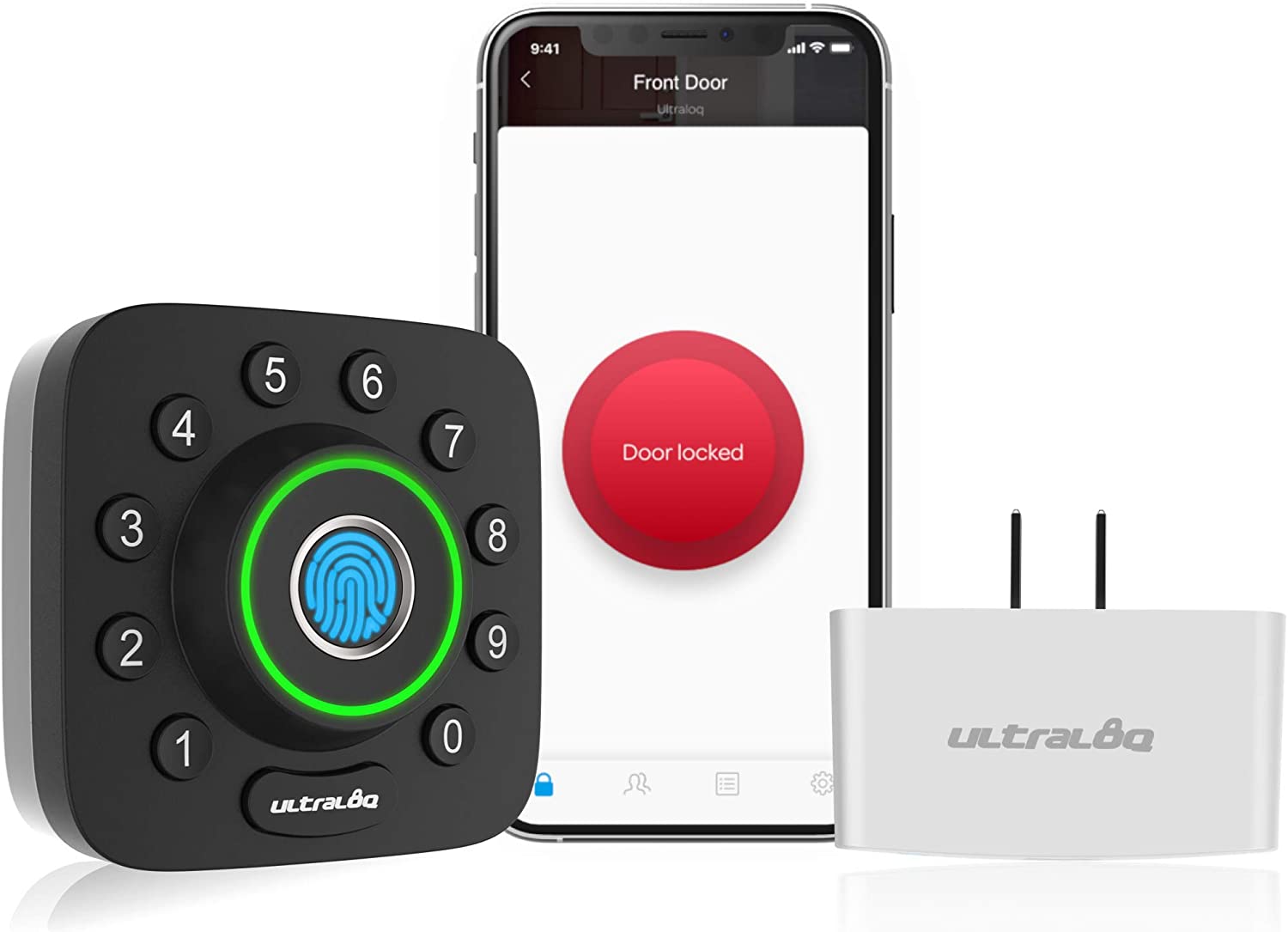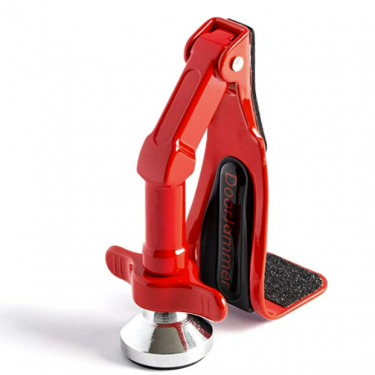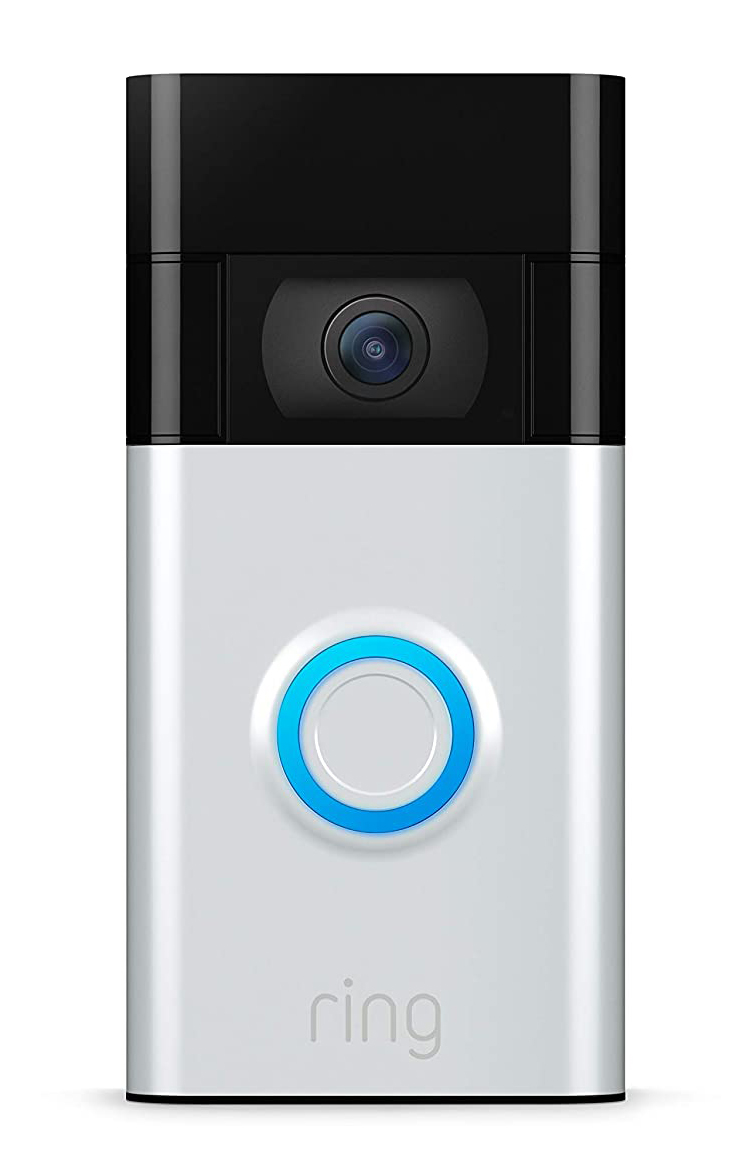Our goal is to share information and products that are truly helpful to renters.
If you click on a link or buy a product from one of the partners on our site, we get paid a little bit for making the introduction. This means we might feature certain partners sooner, more frequently, or more prominently in our articles, but we’ll always make sure you have a good set of options. This is how we are able to provide you with the content and features for free. Our partners cannot pay us to guarantee favorable reviews of their products or services — and our opinions and advice are our own based on research and input from renters like you. Here is a list of our partners.
5 ways to make your apartment more secure
Safety tips for apartment, house and condo renters
When you think about someone breaking into your apartment, you probably think about it happening at night. You’re not alone — most people think the same thing. The truth is that most of the 4,500 daily break-ins happen in broad daylight. This is because thieves would much rather let themselves into your apartment and shop from your belongings when you’re at work. So, how do you make your apartment more secure? You don’t need to spend a fortune on hiring professional security services. Some simple precautions can really help.
5 Tips for making your apartment secure
1. Double-check your doors and windows
The majority of break-ins happen because the burglar finds an unlocked window or door. If yours are all securely locked, they’ll likely move on and try to find an easier target. The more time they have to spend trying to break-in, the more likely they are to get caught, so simply keeping access points locked really helps.
This means it’s pretty important that you have locks that actually work well. If your door lock feels a little flimsy, update it with a good deadbolt. Replacement deadbolts can cost as little as $5 or you can get smart locks for as much as $200+.

Get approval from your landlord before installing locks that require you to drill a new hole in the door or necessitate new keys. Most likely, you can also ask your landlord to install new locks if you don’t feel like your locks are adequate.

2. Don’t leave valuables out in the open
One of the main reasons a burglar tries to break in is because they actually see something they want out in the open. If they can just grab and go, their chances of getting caught are pretty low. Typically, they’re looking for items that are high value and easy to haul away, such as:
- Laptops
- Tablets
- Headphones
- Watches
- Jewelry
- Bicycles
- Weapons
While keeping things out of sight might seem like a simple fix, the trick is to do it every time you leave your home. Put your jewelry and watches away in your dresser or a jewelry box. Keep your laptop or tablet in a case or slide it under the bed. Tuck away headphones (Beats, AirPods, etc).
Of course, the easiest way to avoid things being seen from the outside is to keep your blinds or curtains closed when you aren’t home. Closing your blinds every time you leave is a good habit to get into, especially if you live on the ground floor.
3. Get to know your neighbors
Building a community can really help increase the safety and security of your home and belongings. If you build a relationship with your neighbors, they’ll probably notice if someone unusual is trying to get into your apartment while you’re at work or on vacation.
If you want to be even more proactive and discourage prowlers from even trying to get in, consider launching a neighborhood watch program. A neighborhood watch program is a group of people living in the same area who want to make their neighborhood safer by working together, in conjunction with local law enforcement, to reduce crime and improve their quality of life. Read our article 5 Simple ways to make your neighborhood safer place for more ideas.
4. Install an apartment security system or video doorbell
Even if you’re not a wiring genius, you can set up a wireless alarm system without spending a fortune. A number of new security systems have come on the market, including many that can connect to your phone.
For as little as $0.50/day, a system like SimpliSafe protects your entire apartment and monitors every door, window and room. These types of systems sync with your smartphone and monitor remotely as you deem fit, as well as notify you and the security system company as soon as one of their monitors is tripped.
If you can’t afford an expensive in-home security system, video doorbells are a great way to monitor your door and keep an eye on who’s coming and going.
With Ring doorbells, not only can you see who’s at your door, but you can also set it up to get notifications when there’s movement in its field of vision.

As an added bonus, there are options with two-way voice communication, so you can talk to whoever is at your door as well as see them!
5. Buy a safe
If all else fails and someone does break-in, having your most valuable items stashed away in a safe is your last line of defense — and it’s a pretty good one.
Safes are nearly impossible to break into without a key or the code and they tend to be extremely heavy. Both of these factors discourage theft.
If you have expensive watches or jewelry, like to have some cash on hand, or have papers with your personal information on them (like a social security number), consider putting them into a safe. Safes can range from relatively cheap to relatively expensive, from $43.99 up to hundreds of dollars.
SentrySafe X031 Security Safe was voted the best safe by Antitheft Boss in 2022 for Apartment rentals.
“Place your valuables and personal documents in a safe — even if you have a home security system, a home safe can provide an added layer of security against burglars, as well as protecting your valuables from maintenance people, housekeepers or another visitor.” — Sadie Cornelius for Safe Smart Living
Don’t forget renters insurance
It’s hard to make any place 100% break-in proof. Enter stage left, renters insurance! One of the best parts about renters insurance is it covers theft of your personal property.
Even better, it doesn’t matter where your stuff was stolen. It could’ve been out of your car or your hotel room, your stuff is covered.
Check out our article on Cheapest Rent Insurance to learn more.
Apartment safety begins with the place you pick
One of the best ways to ensure your apartment is more secure begins with your selection of the unit in the first place. Next time you move, research the following for every location you’re considering:
- Local crime (rates, types, locations) on sites like CrimeReports, AreaVibes and Facebook Groups
- Incidents in that specific apartment complex or building
- Lights in the area — You don’t want to get home late one night and be in total darkness!
- Secured apartment complexes that require a code to get in the front door are fantastic
- Don’t rent apartments on the ground floor
- Consider a dog (if your apartment allows them) most burglars won’t even bother if they hear a dog barking
If you take these few things into consideration when looking for the perfect place to move and follow the tips above to make your apartment more secure, you should be able to feel much safer in your home!
Your renters rights, in your state.
Explore what you need to know.
- Alabama Renters Rights
- Alaska Renters Rights
- Arizona Renters Rights
- Arkansas Renters Rights
- California Renters Rights
- Colorado Renters Rights
- Connecticut Renters Rights
- Delaware Renters Rights
- Florida Renters Rights
- Georgia Renters Rights
- Hawaii Renters Rights
- Idaho Renters Rights
- Illinois Renters Rights
- Indiana Renters Rights
- Iowa Renters Rights
- Kansas Renters Rights
- Kentucky Renters Rights
- Louisiana Renters Rights
- Maine Renters Rights
- Maryland Renters Rights
- Massachusetts Renters Rights
- Michigan Renters Rights
- Minnesota Renters Rights
- Mississippi Renters Rights
- Missouri Renters Rights
- Montana Renters Rights
- Nebraska Renters Rights
- Nevada Renters Rights
- New Hampshire Renters Rights
- New Jersey Renters Rights
- New Mexico Renters Rights
- New York Renters Rights
- North Carolina Renters Rights
- North Dakota Renters Rights
- Ohio Renters Rights
- Oklahoma Renters Rights
- Oregon Renters Rights
- Pennsylvania Renters Rights
- Rhode Island Renters Rights
- South Carolina Renters Rights
- South Dakota Renters Rights
- Tennessee Renters Rights
- Texas Renters Rights
- Utah Renters Rights
- Vermont Renters Rights
- Virginia Renters Rights
- Washington Renters Rights
- West Virginia Renters Rights
- Wisconsin Renters Rights
- Wyoming Renters Rights
- Washington, D.C. Renters Rights
